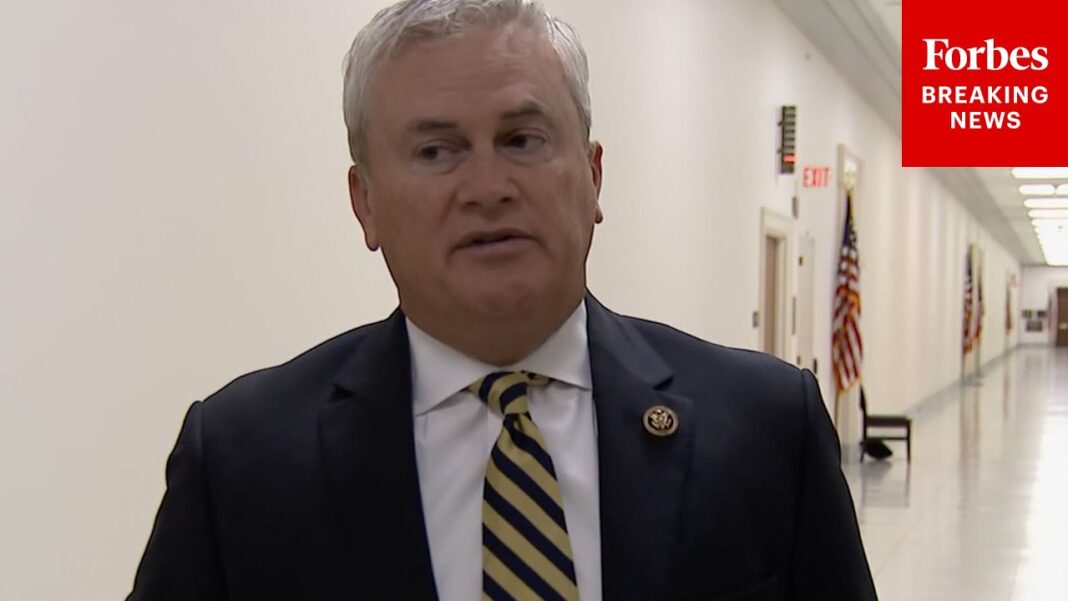In Congressional testimony last week, FBI Director Kash Patel described then-U.S. attorney for the Southern District of Florida Alexander Acosta as the perpetrator of the “original sin” in the now decades-long Jeffrey Epstein sex trafficking/blackmail cover-up (emphasis added):
“Now I know that there’s a lot of talk about Epstein. And I’m here to testify that the original sin in the Epstein case was the way it was initially brought by Mr. Acosta back in 2006.
The original case involved a very limited search warrant or set of search warrants and didn’t take as much investigatory material it should have seized.
If I were the FBI director then, it wouldn’t have happened. The search warrants were limited to small time periods to include 2002 to 2005 and 1997 to 2001. Mr. Acosta allowed Epstein to enter in 2008 to a plea and non prosecution agreement, which then the courts issued mandates and protective orders legally prohibiting anyone from ever seeing that material ever again without the permission of the court.
The non-prosecution agreements also bar future prosecutions for those involved at that time of those individuals.”
Related: AG Pam Bondi Vows Federal Crackdown on ‘Hate Speech’
(Patel, incidentally, which he should not be allowed to forget, publicly pressured the FBI to release the Epstein files in 2023 when he was a podcaster chasing clout has subsequently experienced an incredulous change of heart now that he actually has the power to.)
When Acosta was being vetted for Labor Secretary under Trump 45 — a curious appointment in its own right — he explained the sweetheart 2007 plea deal away by claiming he had been “told Epstein ‘belonged to intelligence’ and to leave it alone.”
Via The Daily Beast, 2019 (emphasis added):
“Epstein’s name… had been raised by the Trump transition team when Alexander Acosta, the former U.S. attorney in Miami who’d infamously cut Epstein a non-prosecution plea deal back in 2007, was being interviewed for the job of labor secretary. The plea deal put a hard stop to a separate federal investigation of alleged sex crimes with minors and trafficking.
“Is the Epstein case going to cause a problem [for confirmation hearings]?” Acosta had been asked. Acosta had explained, breezily, apparently, that back in the day he’d had just one meeting on the Epstein case. He’d cut the non-prosecution deal with one of Epstein’s attorneys because he had “been told” to back off, that Epstein was above his pay grade. “I was told Epstein ‘belonged to intelligence’ and to leave it alone,” he told his interviewers in the Trump transition, who evidently thought that was a sufficient answer and went ahead and hired Acosta. (The Labor Department had no comment when asked about this.)”
Since when does being an intelligence asset render legal immunity from child sex trafficking charges? I must have missed that clause in the legal canon.
Below is a video of Acosta flailing and stammering — after the Epstein scandal broke wide open following his strange Clinton-esque “suicide” in a prison while on suicide watch — to try to explain away what was patently a corrupt miscarriage of justice.
Related: AG Pam Bondi: Still-Unreleased Epstein Files to Be Redacted for ‘National Security’
All of that to say: Acosta has some serious explaining to do, which he has not been forced to in any meaningful way for nearly twenty years.
Via CNN (emphasis added):
“Former US attorney [Alexander Acosta] who negotiated a controversial 2008 plea deal with Jeffrey Epstein defended that agreement in a closed-door meeting with House investigators Friday, according to Democrats in the room…
According to a readout from the panel, Acosta expressed concern over the hours-long testimony to the House Oversight Committee that had prosecutors lost at trial, it could have sent a message that the late convicted sex offender’s crimes could continue. A key issue in the US Southern District of Florida’s handling of the case was whether it should be prosecuted federally or locally, he said, per the readout…
Acosta, they said, told investigators he didn’t see sufficient evidence to move forward with the case even though approximately 40 women had come forward to share their accounts of sexual assault.”
What possible legitimate reason would there be not to drag Acosta out into the open, under public scrutiny, for this interrogation and instead allow him the privilege of giving testimony behind closed doors, except to allow him to escape justice?
Acosta, in March was appointed to the board of Newsmax, which would seem to suggest that he could easily book an interview with any of the so-called journalists over there and absolve himself of any allegations of wrongdoing once and for all.
Via Newsmax, June 2025 (emphasis added):
“Newsmax… today announced the appointment of Ambassador Paula J. Dobriansky to the Company’s Board of Directors, effective immediately. Dobriansky will serve as a member of the Audit Committee alongside former U.S. Secretary of Labor Alex Acosta, who was appointed to the Board upon the closing of the Company’s initial public offering in March of this year…
Mr. Acosta’s diverse experiences include serving as Chairman of U.S. Century Bank, as Dean of the FIU College of Law, as U.S. Attorney and Assistant Attorney General at the Department of Justice, as a Member of the National Labor Relations Board, as a Senior Fellow at the Ethics & Public Policy Center and as an analyst at Lehman Brothers. Following law school, Mr. Acosta worked as a law clerk for then U.S. Court of Appeals Judge Samuel A. Alito, and as an associate, primarily in labor law and in appeals, at Kirkland & Ellis.”
A “Senior Fellow at the Ethics & Public Policy Center”!
A totally deserved accolade for Alex Acosta, paragon of integrity and virtue.
No wonder Americans retain so much faith in the institutions of this, Our Sacred Democracy™.








